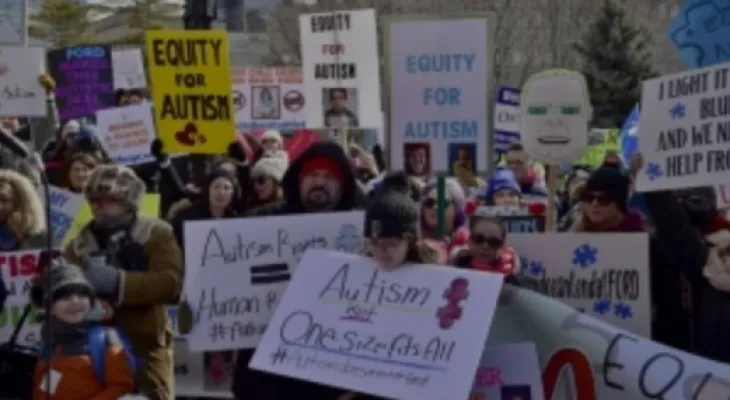Search here
Newspaper
Search here

Arab Canada News
News

Published: October 16, 2023
New figures indicate that the number of children with autism receiving publicly funded needs-based core therapy in Ontario has now only returned to the level it was five years ago, before changes made by the Progressive Conservative government turned the system upside down.
Documents obtained through freedom of information requests showed that as of mid-July, there were 8,758 children with signed funding agreements for core therapy services within their families. The documents also showed that the number of registered individuals was steadily rising, and it is likely that this continued after July, despite the government's refusal to provide current numbers.
Looking back to the period of 2018-2019, before the changes implemented by the Conservatives took effect, 10,365 children received needs-based services under the Ontario Autism Program, according to the province's Financial Accountability Office.
This number then decreased, as children who aged out of the program were not added, and others were not added in the same way when the government switched to a new funding model.
For her part, Alina Cameron, chair of the Ontario Autism Coalition, which organized a protest on Monday at the legislature, said she is "angry" to see the lack of long-term progress in the new numbers.
She added in an interview, "I can't believe that such a small number of children have crossed the threshold." "Early intervention is key. This is the thing that gets drilled into your head as a parent when your child is diagnosed. Then you have a department that is slow to establish and run this program. It's scary, because these children will never reach their full developmental potential in their lives because of these delays."
In early 2019, Lisa MacLeod, then Minister of Children, Community, and Social Services, announced a comprehensive overhaul of the autism program put forth by the previous Liberal government.
Instead of providing children with core therapy based on their individual needs, the new program would see families receiving up to $20,000 or $5,000 per year for therapy, MacLeod announced, to "clear" the waitlist for services - which was then about 23,000 children. Families and advocates say that intensive therapy for high-needs children can cost more than $90,000 a year.
Family outrage eventually pushed the government to once again overhaul the program to make it needs-based, although some argue it still isn’t truly needs-based because it is subject to funding caps that are partially determined by age.
It also faced several delays - as she has been in her role for several years - and only started to enroll new children in core therapy services last summer. In the meantime, the government provided temporary one-time payments of around $20,000 or $5,000, depending on age.
By the time new registrations for core services began last summer, about 3,600 children were receiving publicly funded therapy based on needs after qualifying from the previous Liberal government’s program.
The process of enrolling children in the new program was slow at first, but it now appears to be steadily increasing.
Documents obtained by the Canadian press through freedom of information requests revealed that between March 8 and July 12, the number of children with funding agreements for core therapy services rose by between eight and 27 percent every two weeks.
The amount of funding allocated for core therapy has increased alongside the rising number of children receiving services, reaching $387.4 million by July 12. This represents nearly 60% of the total annual program budget. Other services within the program include workshops for parents and a school enrollment program.
A transition file containing information for Michael Parsa, who took over the ministerial role in March, indicated that in the current budget of $667 million, approximately 20,000 children can be funded for core clinical treatments.
At the same time, there are around 60,000 children seeking services through the program, with about 7,000 more added to the list each year.
Comments